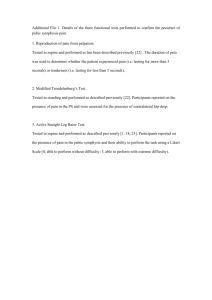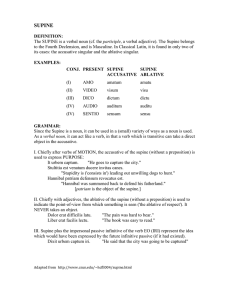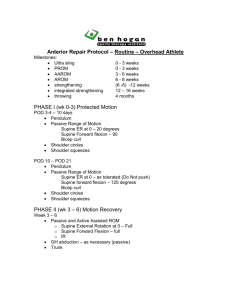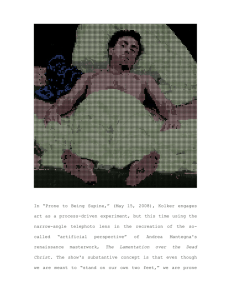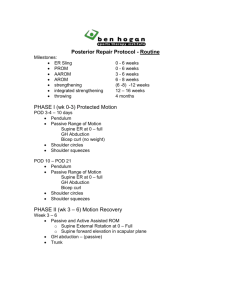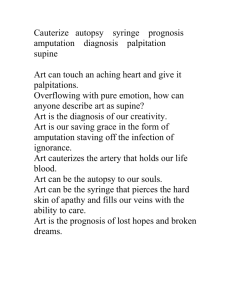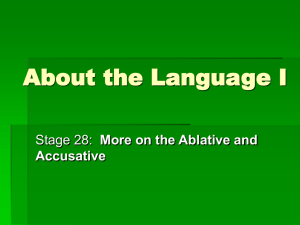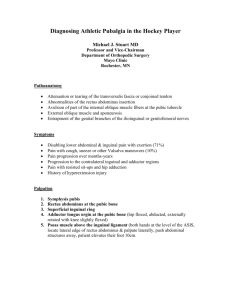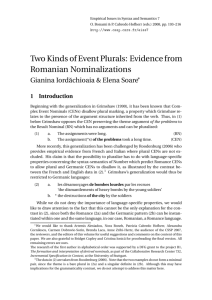the Supine - Skidmore College
advertisement
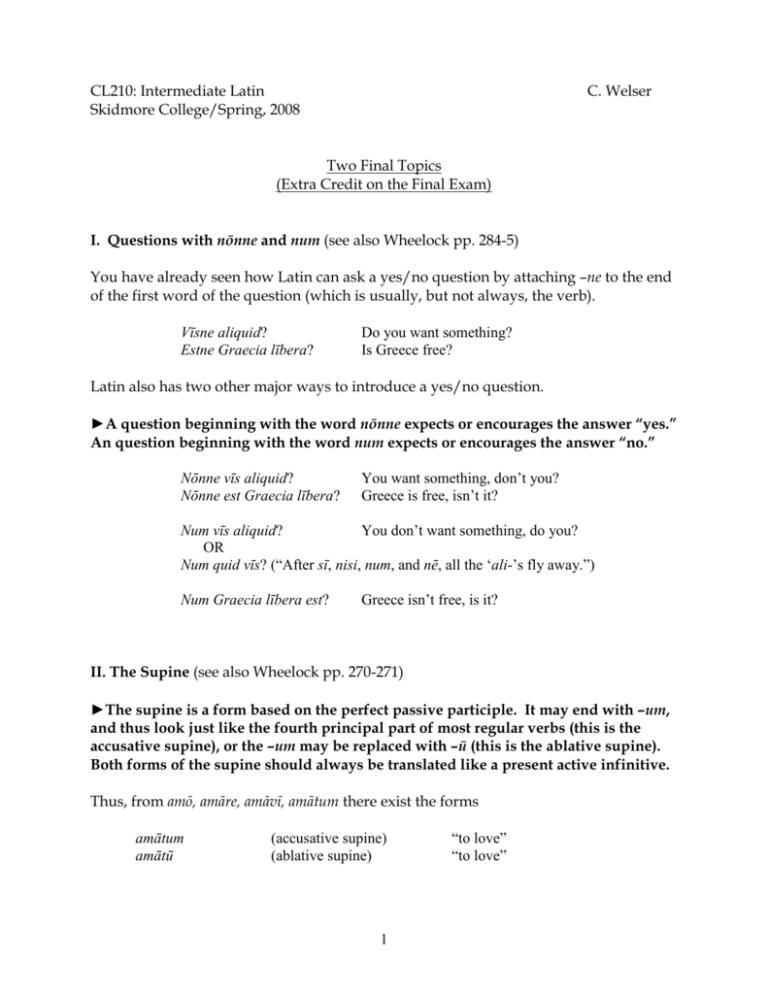
CL210: Intermediate Latin Skidmore College/Spring, 2008 C. Welser Two Final Topics (Extra Credit on the Final Exam) I. Questions with nōnne and num (see also Wheelock pp. 284-5) You have already seen how Latin can ask a yes/no question by attaching –ne to the end of the first word of the question (which is usually, but not always, the verb). Vīsne aliquid? Estne Graecia lībera? Do you want something? Is Greece free? Latin also has two other major ways to introduce a yes/no question. ►A question beginning with the word nōnne expects or encourages the answer “yes.” An question beginning with the word num expects or encourages the answer “no.” Nōnne vīs aliquid? Nōnne est Graecia lībera? You want something, don’t you? Greece is free, isn’t it? Num vīs aliquid? You don’t want something, do you? OR Num quid vīs? (“After sī, nisi, num, and nē, all the ‘ali-’s fly away.”) Num Graecia lībera est? Greece isn’t free, is it? II. The Supine (see also Wheelock pp. 270-271) ►The supine is a form based on the perfect passive participle. It may end with –um, and thus look just like the fourth principal part of most regular verbs (this is the accusative supine), or the –um may be replaced with –ū (this is the ablative supine). Both forms of the supine should always be translated like a present active infinitive. Thus, from amō, amāre, amāvī, amātum there exist the forms amātum amātū (accusative supine) (ablative supine) 1 “to love” “to love” ►The accusative supine is used after a verb of motion to indicate the purpose of the motion. Like a verb, it may take a direct object: Vēnimus vōs vīsum. We came to see you. Ībō Rōmam imperatōrem monitum. I will go to Rome to warn the emperor. Notice the need to distinguish the supine in the second sentences from a perfect passive participle agreeing with imperatōrem (“the emperor having been warned”). This is usually not difficult if one can remember that the supine exists, since sentences containing the supine often will not make sense when read in any other way. The accusative supine is not especially common. ►The ablative supine is used with a neuter adjective to indicate the specific application of that adjective. The ablative supine occurs mostly in a small number of fairly well-known Latin expressions that tend to be used as exclamations or asides. mīrabile dictū! terribile visū! facile dictū, difficile factū! a wonderful thing to say! a frightful thing to see! an easy thing to say, a hard thing to do! The ablative supine is somewhat more common than the accusative supine, and was particularly favored by certain authors, such as Virgil. 2
